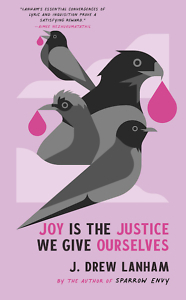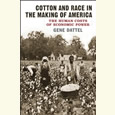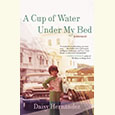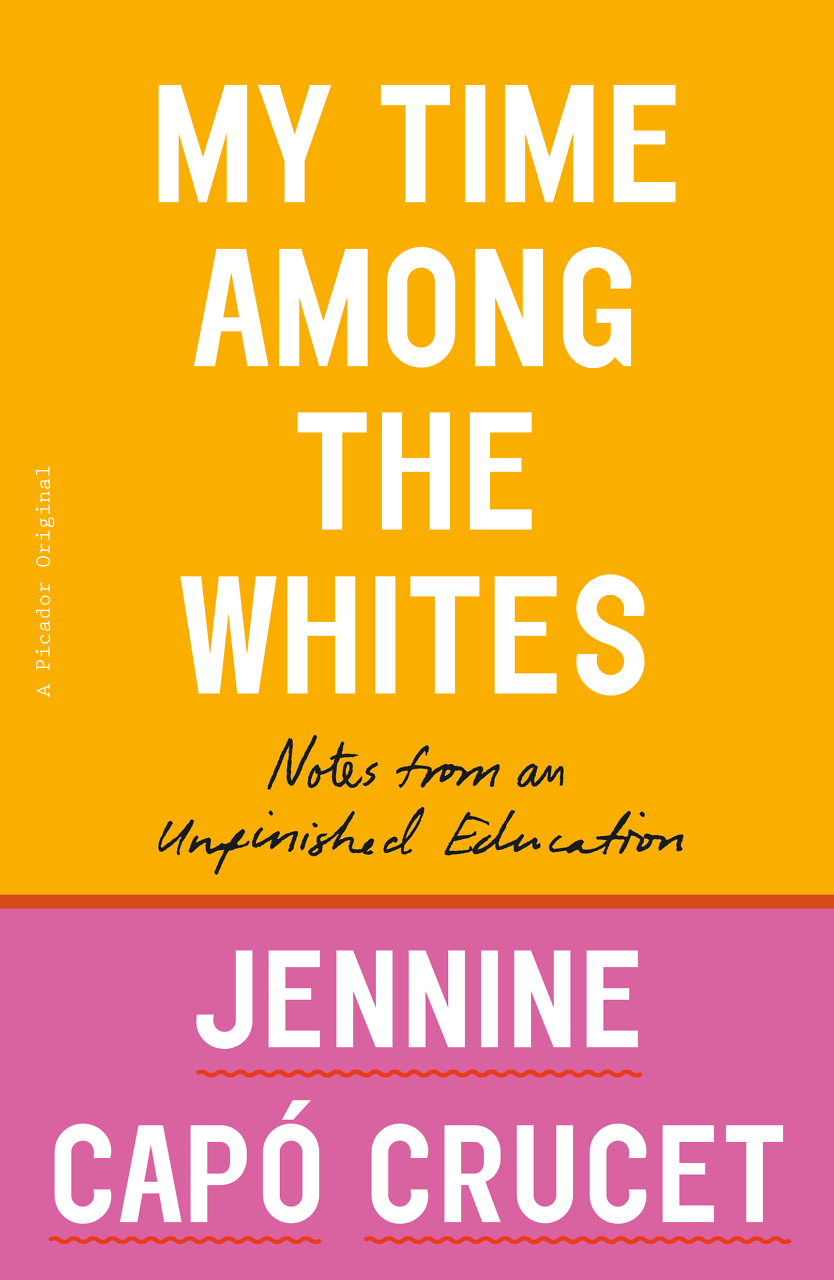To Notice and Be Wild
Drew Lanham’s new collection is an ode to joy in a harsh world
Outside my window most mornings — especially in the spring — a Carolina chickadee begins the morning symphony. I awake immediately, this bird my pre-sun alarm now. And I whisper-sing back to it, though it cannot hear me through the walls: “Good morning, chickadee.” Except I don’t really sing back to it; I sing with it, making sure my words align to each note of its dawn song. It makes me feel immeasurable joy, and I giggle. Joy should not be this easy, I think. But there it is repeatedly — a tiny-winged joy as easy as sunrise.

But even the ease of joy can be hard fought. In J. Drew Lanham’s new poetry collection Joy Is the Justice We Give Ourselves, he offers an ode to joy and how we must simply practice it, even as we practice it in a harsh world where “for every sugary sweet sip … there’s a ruby-throated war being waged.” We practice it with bruised wings, the molting kind of sadness that strips you so much, you might no longer believe in flight. But cultivating joy in the midst of this harshness, as the collection’s title suggests, is a necessary gift to ourselves.
Lanham breaks the collection into two sections: “To Notice” (with an epigraph by Zora Neale Hurston) and “To Be Wild” (with an epigraph by Henry David Thoreau). Lanham, a South Carolina poet and wildlife biologist, makes a life out of noticing the wild wonders of the world. The book calls out present atrocities of racism, injustice, war, murders in schools, and ecological destruction he’s noticed while calling humanity into embracing the wild possibilities of a better way of living among one another.
While the line is not distinctly drawn by seasons in each section, the noticing section certainly seems to spend much time in fall and winter, and the second half of the book feels a lot like spring. But even when he’s leaning into possibility, Lanham refuses to ignore despair. And vice versa. He does not shy away from the shock of some of these horrors with lines such as “Dead is the new Black.”
Relying on anaphora, lists, and prose poems/selections, Lanham’s work often reflects the repetitive musicality of the birds he spends his days listening to.
I was river braided into itself.
I was spruce tree tall. I was wildflower
low.
I was ice flow
That is to say,
I was time itself grinding slow to silt
all in my path
 He’s tempted at times to separate humanity from the natural world or to venerate nature’s creatures as a wise teacher. At other times, the speaker in Lanham’s work becomes animal. Or perhaps Lanham’s language reminds us that humans are animals, are nature. This relationship is symbiotic. There is no us and them when we remember this. Lanham wears the characteristics of a wolf (“It is the day of me howling to myself”) and invites us to do the same. Fully embracing his role as educator and wildlife expert, he often writes field guide-like poems, instructing readers how to become feral or wild or a better being.
He’s tempted at times to separate humanity from the natural world or to venerate nature’s creatures as a wise teacher. At other times, the speaker in Lanham’s work becomes animal. Or perhaps Lanham’s language reminds us that humans are animals, are nature. This relationship is symbiotic. There is no us and them when we remember this. Lanham wears the characteristics of a wolf (“It is the day of me howling to myself”) and invites us to do the same. Fully embracing his role as educator and wildlife expert, he often writes field guide-like poems, instructing readers how to become feral or wild or a better being.
These poems don’t speak to us as readers alone, though. They feel deeply personal, as if we’re getting a glimpse into Lanham’s journal entries on a morning after he’s been birding. He’s instructing himself, as well. Perhaps these instructions are his way of practicing the justice of joy — how to stay alive and thrive as a Black man in a nation where Black joy has been long fought for centuries.
This isn’t a poetry collection to devour in one sitting. It’s intended to lengthen within us, to be revisited for regular reminders that might feel heavy-handed if read successively and too quickly. The book, his second collection of poems, offers 94 pages of a waltz between poetic line and prose, plus an acknowledgments section called “Gratitude” and a glossary, which must not be skipped. These sections are essentially poems, as well:
See
To view or look upon. Or, if so soulfully inclined, to imagine beyond. No sight required. Insight and vision highly recommended.
Lanham spends these pages not looking solely at mountains and moons and yard wild robins; he also looks upon the way we treat and speak of each other and nature, imagining new ways of honoring all creatures on Earth. He even calls wildlife-loving people who still speak violently about black birds like cormorants and starlings into new ways of decolonizing their language and honoring these passerines.
The way we honor and thank all of creation matters. He ends the collection honoring a fellow South Carolina poet — Nikky Finney — whose work I certainly have deeply depended upon. In the poem “All That We Carry (forever incomplete),” Lanham says, “for Nikky Finney who carries so much for us in her words:”
in prayers
despite all this,
we carry you, America
still
clinging to our backs.

Ciona Rouse is a poet, editor, and educator based in Nashville. The author of the chapbook Vantablack (Third Man Books, 2017), her poetry also appears in Oxford American, Poem-a-Day, NPR Music, The Slowdown, Booth, and other publications.


